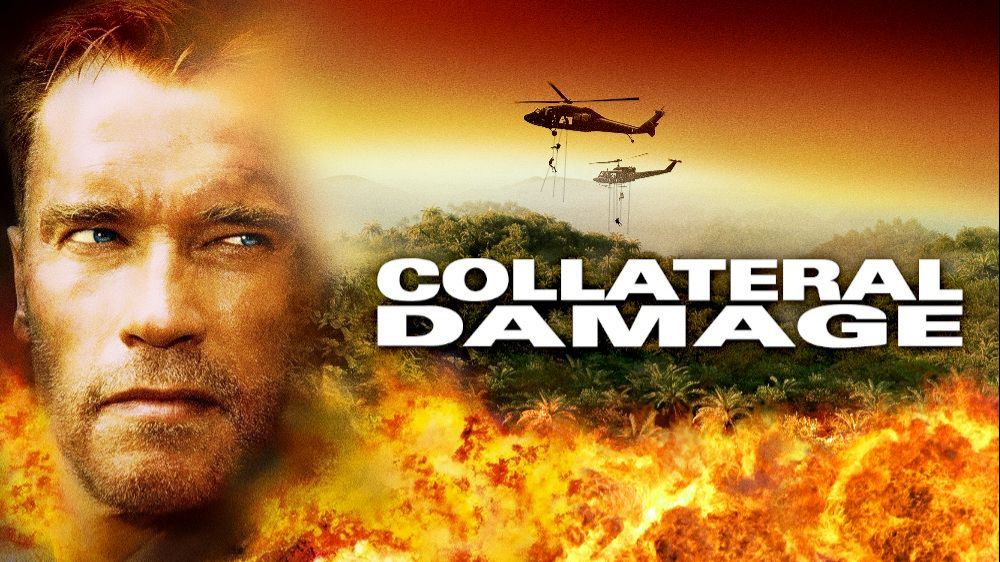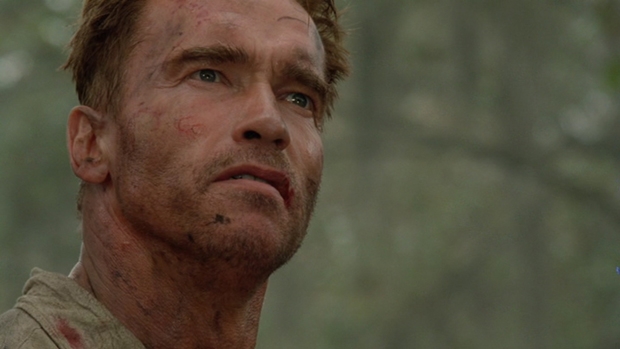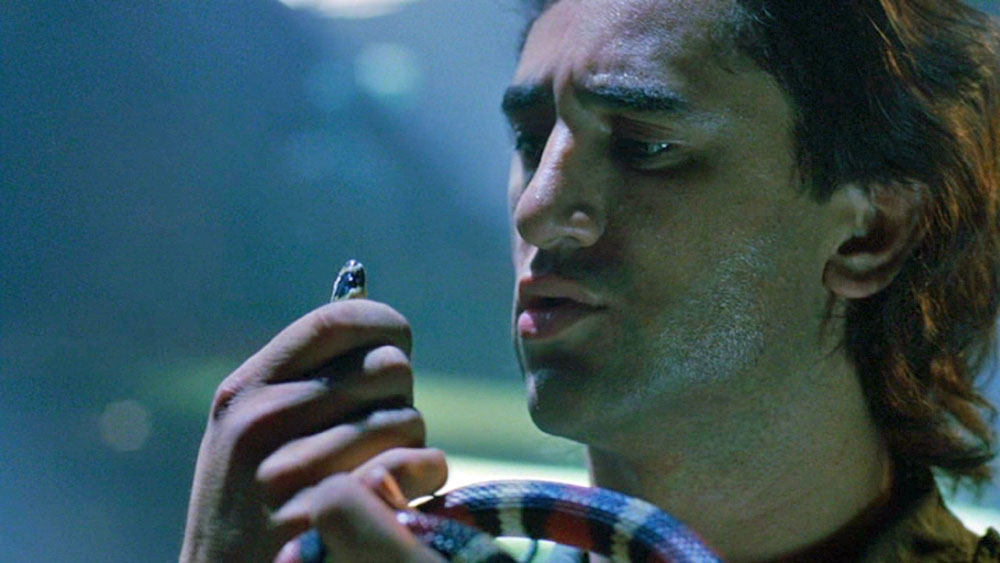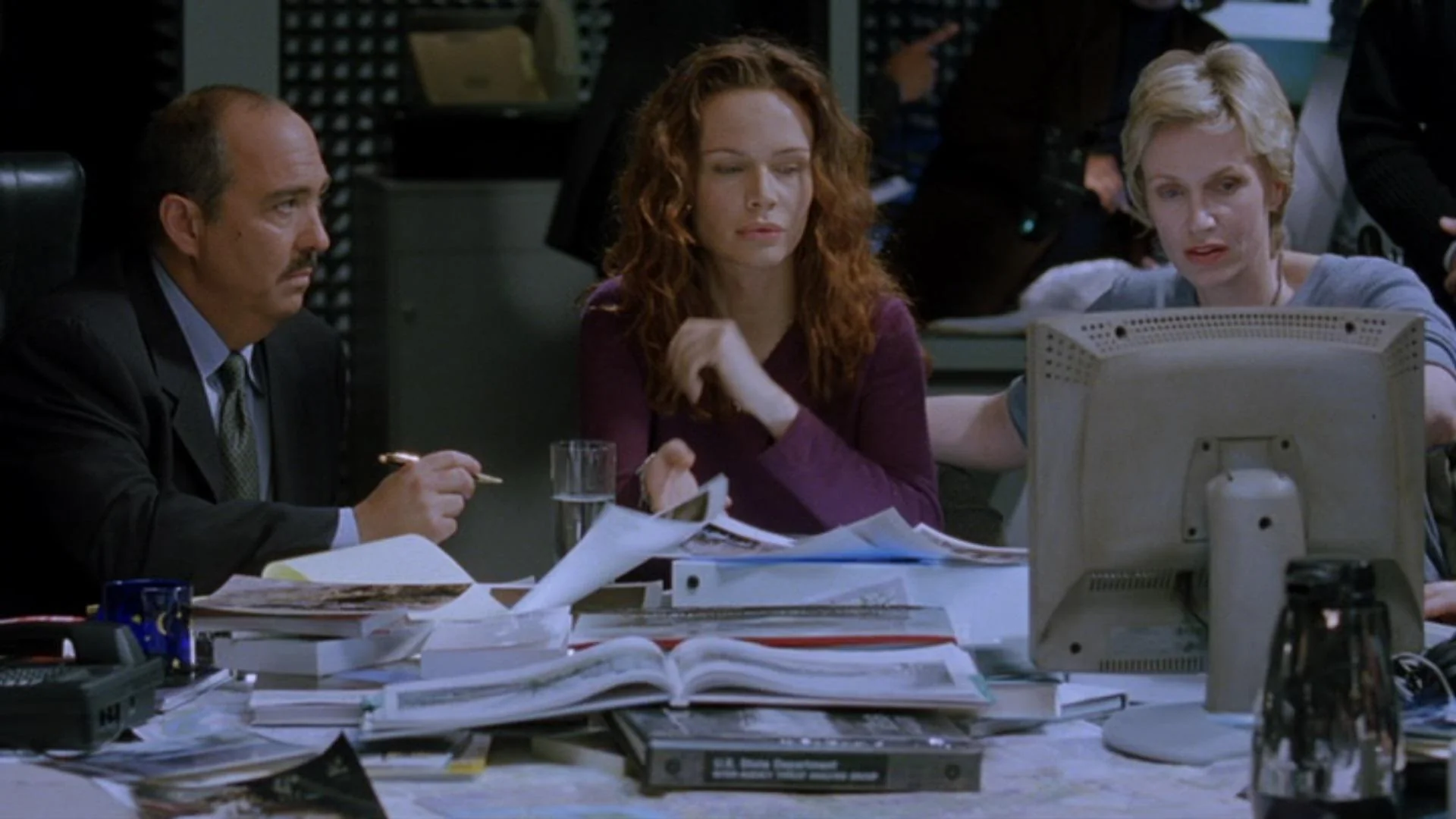Collateral Damage (2002)

Collateral Damage (2002), directed by Andrew Davis, is an action thriller starring Arnold Schwarzenegger as Gordy Brewer, a Los Angeles firefighter who becomes entangled in a personal quest for justice after his wife and son are killed in a terrorist bombing. The film blends high-stakes action with political intrigue, touching on themes of revenge, terrorism, and the moral complexities that emerge in a battle against those who harm innocent lives.
The movie begins with Gordy Brewer living a content and unassuming life as a firefighter in L.A. That life is shattered when his family is killed in a massive explosion, orchestrated by a Colombian terrorist known as “El Lobo” (The Wolf), played by Cliff Curtis. The bombing targets a government building but also results in extensive civilian casualties. Gordy arrives just moments too late to save his loved ones, and their deaths drive him into a state of grief and rage. When it becomes apparent that traditional law enforcement and diplomatic channels are unlikely to bring El Lobo to justice quickly, Gordy takes matters into his own hands.
In an era that was marked by heightened concerns about terrorism (particularly in the wake of 9/11), Collateral Damage focuses on one man’s desperate and personal war against those he holds responsible. Gordy’s journey leads him to Colombia, where he infiltrates dangerous and volatile terrain to track down El Lobo. Schwarzenegger’s portrayal of Gordy eschews his usual superhuman, indestructible action persona for a more grounded and vulnerable character. Unlike some of his iconic roles, Gordy is not a trained soldier or secret agent; he’s an ordinary man driven by grief and an overwhelming sense of loss. While he still proves resourceful and tough, the film emphasizes the toll that his quest for revenge takes on him, both physically and emotionally.
The film also attempts to delve into the political dynamics fueling the conflict. El Lobo’s motivations are rooted in a complex political struggle involving U.S. involvement in Colombian affairs. His wife, Selena (Francesca Neri), adds further complexity to the narrative as a character who is both a mother and a participant in her husband’s cause. These elements aim to give the story more depth than a standard revenge thriller, although the film’s treatment of such issues has been critiqued as somewhat superficial or stereotypical.
As Gordy pursues El Lobo, Collateral Damage features numerous action sequences, including tense infiltration scenes, jungle chases, and explosive set pieces. Andrew Davis, known for directing The Fugitive (1993), demonstrates his skill with suspenseful pacing and tightly-choreographed action. However, the film’s tone shifts between serious political commentary and classic action-revenge tropes, sometimes leading to uneven pacing and mixed messages about its themes.

The film’s release was delayed due to the real-world terrorist attacks on September 11, 2001, which lent unintended poignancy and sensitivity to its subject matter. The delay and subsequent marketing changes reflected the film industry’s evolving approach to depicting terrorism in a dramatically altered political and cultural landscape.
Critically, Collateral Damage received mixed reviews, with praise directed at Schwarzenegger’s more subdued and humanized performance but criticism for its uneven handling of political themes and familiar action tropes. It was also noted that the film, despite its attempts to present a more complex narrative, ultimately functions best as a vehicle for action thrills rather than a nuanced exploration of terrorism and geopolitical conflict.
Despite its flaws, Collateral Damage offers an engaging story of one man’s relentless pursuit of justice. Schwarzenegger’s portrayal of a grieving husband and father showcases a different side of the action star, providing a more grounded and vulnerable performance than some of his more iconic roles. For fans of thrillers with a mix of explosive action and personal stakes, the film delivers an adrenaline-fueled ride while reflecting the era’s anxieties surrounding global terrorism and the human cost of violence.










